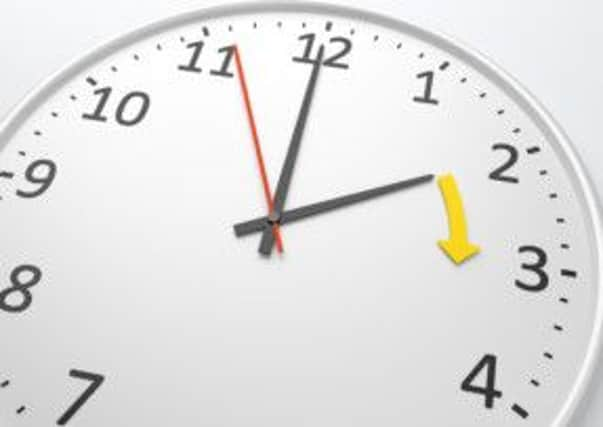When do the clocks go forward in 2015?


The clocks go one hour forward on Sunday 29, March 2015 at 1am, heralding in BST, lighter nights and (hopefully) better weather as spring gets well underway.
The clocks go back again in autumn in the early hours of Sunday, 25 October 2015.
Advertisement
Hide AdAdvertisement
Hide AdThe hour changes in spring and autumn in an attempt to make the most of the light.
If you struggle with which is which, this, albeit of North American origin, might help you remember: “Spring forward, fall back”.
Fall being the American term for autumn.
Interesting facts about BST:
British-born New Zealander George Vernon Hudson first proposed the modern idea of a two-hour daylight saving in 1895.
British Summer Time was suggested in 1907 by William Willett, a keen horse rider and frustrated by the ‘waste’ of daylight in the early mornings during the summer.
Advertisement
Hide AdAdvertisement
Hide AdWillett’s pamphlet ‘The Waste of Daylight’ campaigned for the clocks to be changed, but he died in 1915 before he could see it come into being as the idea was opposed by many, especially farmers.
Austria and Germany were the first countries to enact ‘Daylight Savings Time’ in 1916, quickly followed the same year by the UK and much of Europe.
It was enforced during the First World War, in a bid to save money during wartime.
The current system has been in place since 1972, proposals to keep the clocks at least one hour ahead of GMT all-year round have been debated frequently in parliament but never implemented.
Advertisement
Hide AdAdvertisement
Hide AdThe lighter evenings are also said to reduce road traffic accidents and crime.
It is argued BST is good for physical and psychological health, particularly in terms of relieving the symptoms of Seasonal Affective Disorder (SAD).